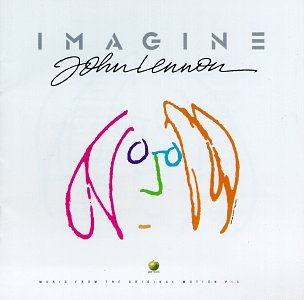I assigned a couple dozen passages from the Analects to my students, inviting them to choose nine of them to respond to "in whatever creative way you choose." I’ve enjoyed reading those responses, overall. So many interesting connections: Confucius and Freud, Confucius and Obama, Confucius and Rabinadrath Tagore, on and on.
Maybe it’s them – and student Kelsey particularly, because she mentioned liking the Beatles in her Analects webcam discussion – that led me to my own new connection today. It’s this: John Lennon’s classic song, “Imagine,” pretty much describes ancient Confucian and Taoist wisdom:
Verse 1:
Imagine there's no Heaven
It's easy if you try
No hell below us
Above us only sky
Imagine all the people
Living for today
This is ancient Chinese through and through: nature is nothing to fear, and neither is death. But since death seems like it might be final (in a natural, “that’s the way the Yang Yins” sort of way), today certainly is something to cherish. The ancestors wish they were still here, after all – that’s why we offer them the earthly things we love – food, flowers, incense, family love and respect. To me it’s obvious: in China, earth is heaven. And it doesn’t last forever, which only adds beauty in a bittersweet way.
Imagine there's no countries
It isn't hard to do
Nothing to kill or die for
And no religion too
Imagine all the people
Living life in peace
No countries. Confucius and Zhuangzi both urge a devotion to other humans, not to a flag. “With filial piety, who needs to work for the government?” and “I’d rather drag my tail in the mud” both pretty much say nations shouldn’t be that important.
Verse 3:
Imagine no possessions
I wonder if you can
No need for greed or hunger
A brotherhood of man
Imagine all the people
Sharing all the world
--point blank, no ancient Chinese philosophy -- not Confucianism, not Daoism, not Legalism -- thought that wealth equals happiness, or that the pursuit of profit was the "Tao." On the contrary, they considered people who buy and sell for profit what other people make dishonorable, and used a pretty brutal word to describe business-people: parasites. Businesspeople (or "merchants," as our textbooks delicately call them) were lower on China's social hierarchy than farmers (or "peasants," as our textbooks indelicately call them).
So China already, 2,000 years ago, seems closer to Karl Marx than to Adam Smith.
The funny thing is, John Lennon thought it was only a "dream."
You may say that I'm a dreamer
But I'm not the only one
I hope someday you'll join us
And the world will live as one
If he knew China's history, he'd have realized he was "not the only one."


No comments:
Post a Comment